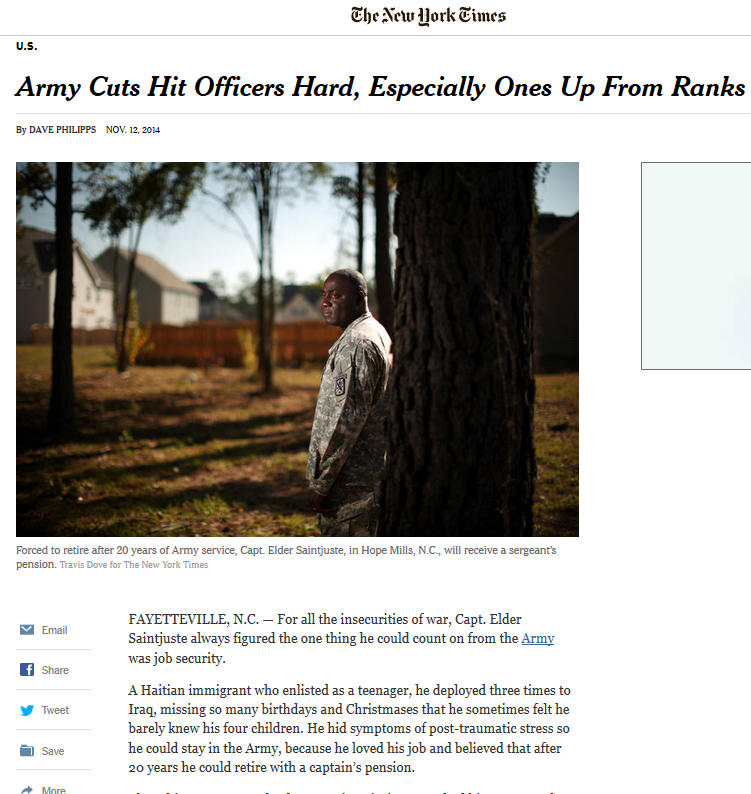The U.S. Army: Don’t Let The Door Hit You On The Way Out
“For the first time since the end of the Cold War in the 1990s, the Army is shrinking.” So begins a recent New York Times article that profiles several officers who had planned on remaining with the Army for their entire careers but are being pushed out years earlier than expected due to budget cuts.
According to the Times, close to 1,200 captains and 550 majors will soon be out of work, with additional layoffs scheduled next year. And the choices about which officers will remain with the Army—and which will not—are raising some eyebrows:
“Many are being pushed out despite having good records. When the Army announced the impending officer cuts a year ago, officials said they would target officers with evidence of poor performance or misconduct.
But an internal Army briefing disclosed by a military website in September showed the majority of captains being forced out had no blemishes on their records. The briefing, a copy of which was obtained by The New York Times, also showed that officers who had joined the Army as enlisted soldiers, then endured the demanding process required to rise into the officer corps, were three times as likely as captains who graduated from West Point to be forced to retire.”
The officers’ stories are full of hardship. Some are receiving dramatically smaller pensions than they expected, others are flirting with bankruptcy, and many are feeling a sense of loss and betrayal. In response, the Army issued a statement that failed to match or acknowledge the emotion of these stories. Worse, it appeared to slight the officers who had been let go:
“Selections for separation are based on a soldier’s manner of performance relative to their peers while serving as a commissioned officer,” Lt. Col. Benjamin Garrett, an Army spokesman, said in an email. “The boards retained those with the highest demonstrated levels of performance and the most potential for future contributions on active duty.”
Ouch. I’m sure the men and women who served were thrilled to see their work dismissed in such cold terms.
This statement suffers from the same problem as the one I highlighted last week regarding the medical center that treated Joan Rivers: It’s bereft of humanity.
In fairness, it’s entirely possible that Lt. Col. Garrett’s full statement contained more human language, but was cut from the story by the reporter. Even if that’s the case, this quote highlights the need to only send a reporter a short quote that can’t be easily edited down. As an example, this quote would have avoided the problem of sounding unnecessarily harsh:
“Dismissing an officer for budgetary reasons is always an excruciating decision. Although we made selections for separation based on a soldier’s manner of performance, many well-qualified and decorated officers are not being retained. We honor their service and are fully committed to easing their transitions to post-military life.”
Since this is the second time I’ve written about this topic in as many weeks, I’ll propose a new rule: When drafting a crisis statement, always remember that you’re just a person, talking to another person.
A grateful h/t to presentation coach Gary Genard, who tweets at @GaryGenard.




